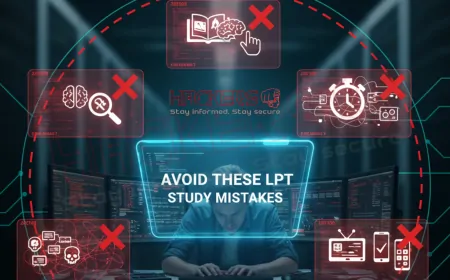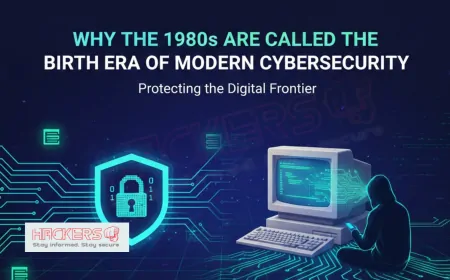Common Challenges Faced During the CKS Certification Journey
Embarking on the path to becoming a Certified Kubernetes Security Specialist (CKS) is like setting out on an epic quest in a world of containers and clusters. You're not just learning commands; you're arming yourself to defend against digital dragons—cyber threats that could compromise entire systems. In 2025, with Kubernetes powering more applications than ever, the CKS certification from the Cloud Native Computing Foundation (CNCF) stands as a beacon for those wanting to specialize in security. But like any worthwhile adventure, it's filled with obstacles. From juggling a full-time job while studying to wrestling with complex tools, many aspirants hit roadblocks that test their resolve. I've talked to folks who've been through it, and their stories are a mix of frustration and triumph. In this post, we'll explore these common challenges, share real experiences, and offer practical advice to help you navigate them. Whether you're a beginner dipping your toes into cloud security or an experienced admin eyeing that cert, understanding these hurdles can make your journey smoother and more successful.

Table of Contents
- What is the CKS Certification?
- Challenge 1: Meeting the Prerequisites
- Challenge 2: Balancing Time with Work and Life
- Challenge 3: Setting Up Practice Environments
- Challenge 4: Grasping Complex Security Concepts
- Challenge 5: Mastering Tools and Hands-On Practice
- Challenge 6: Navigating the Exam Format
- Challenge 7: Managing Exam Anxiety and Time Pressure
- Challenge 8: Dealing with Failure and Retakes
- Challenge 9: Keeping Up with Kubernetes Updates
- Challenge 10: Maintaining Certification Post-Exam
- Summary of Challenges and Solutions
- Conclusion
- FAQs
What is the CKS Certification?
Before we tackle the challenges, let's get a quick overview of what CKS is all about. The Certified Kubernetes Security Specialist certification validates your skills in securing container-based applications and Kubernetes platforms. It's a hands-on exam where you perform tasks in a simulated environment, covering areas like cluster setup, hardening, and runtime security. Launched by CNCF, it's aimed at professionals who already have the Certified Kubernetes Administrator (CKA) under their belt. In 2025, with Kubernetes version 1.34 out, the exam keeps evolving to include the latest security practices.
Why pursue it? Well, in a world where data breaches make headlines weekly, certified experts are in high demand. But getting there isn't easy. Many report the CKS as the toughest in the Kubernetes lineup, demanding not just knowledge but practical fluency. It's like learning to drive in theory versus handling a car in rush-hour traffic—the real test is in the doing. Now, let's dive into the hurdles you'll likely face.
Challenge 1: Meeting the Prerequisites
One of the first stumbling blocks is the entry requirement: you must hold a valid CKA certification to even attempt CKS. This makes sense because CKS builds on administrative skills, but for newcomers, it means doubling the effort. If your CKA has expired or you haven't taken it yet, you're looking at extra time and cost.
Picture this: You're excited about security, but first, you have to master cluster management. Many beginners underestimate this, thinking they can wing it. In reality, without solid CKA foundations—like understanding pods and deployments—you'll struggle with security layers. To overcome this, bundle the exams if possible, or refresh your CKA knowledge through free resources like Kubernetes docs. It's a gatekeeper, but crossing it sets you up for success.
Challenge 2: Balancing Time with Work and Life
Life doesn't pause for certifications. A common gripe is squeezing study time around a full-time job and personal commitments. One professional shared how they studied 2-4 hours after work, often feeling drained, and longer on weekends. It's exhausting, and burnout is real.
The CKS prep typically takes 2-4 months, but with a job, it stretches longer. The challenge is creating a sustainable plan—maybe early mornings or lunch breaks for quick reviews. Use tools like calendars to block time, and involve family for support. Remember, consistency over cramming wins the race. If you're juggling, start small: 30 minutes a day on basics, building up to labs.
Challenge 3: Setting Up Practice Environments
CKS is hands-on, so you need a playground to experiment. But setting up a Kubernetes cluster isn't plug-and-play. Tools like Minikube or KIND are great for locals, but configuring them for security scenarios can be tricky—think networking issues or resource limits on your machine.
Cloud options like GKE or EKS add costs, and beginners might face setup errors that eat hours. A tip: Start with online playgrounds like Killercoda, which provide ready clusters. Gradually move to local setups for deeper control. Practice tearing down and rebuilding to mimic real troubleshooting. This challenge builds resilience, turning frustration into expertise.
Challenge 4: Grasping Complex Security Concepts
Security in Kubernetes isn't straightforward. Domains like cluster hardening or supply chain security involve concepts like RBAC (Role-Based Access Control, which limits who can do what) or CIS benchmarks (security checklists). For those from non-security backgrounds, it's a steep learning curve—understanding threats like container escapes or misconfigurations.
The breadth is daunting: 20% weights on areas like minimizing vulnerabilities mean deep dives. Overcome by breaking it down: Study one domain weekly, using analogies (e.g., RBAC as office key cards). Resources like official docs or courses explain jargon simply. Don't memorize; understand why a policy blocks access. With time, it clicks.
Challenge 5: Mastering Tools and Hands-On Practice
CKS requires fluency with tools like Trivy for scanning images or Falco for runtime monitoring. The challenge? Installing, configuring, and interpreting outputs under time pressure. Beginners often struggle with syntax or false positives.
Hands-on is key, but without guidance, it's trial-and-error. Use mocks from Killer.sh to simulate. Create scripts for common tasks, like automating scans. Join communities for tips—Reddit threads are gold. This builds intuition, turning tools from foes to allies.
Challenge 6: Navigating the Exam Format
The exam is performance-based: 2 hours, 15-20 tasks in a browser terminal. No multiple-choice; you fix real issues. Challenges include limited docs (only official sites) and no external help.
Misreading tasks or cluster states can derail you. Practice with simulators to get comfy. Bookmark allowed pages. It's open-book, but efficiency matters—search smartly. Familiarize with the interface via checks. This format tests application, rewarding practical prep.
Challenge 7: Managing Exam Anxiety and Time Pressure
Exam day jitters are common, amplified by the clock. With 67% to pass, every minute counts. Anxiety leads to rushes, causing errors like YAML indents.
Build resilience: Pomodoro for study, breathing exercises. In exam, triage easy tasks first. Visualize success. If stressed, pause briefly. Mental prep is as vital as technical.
Challenge 8: Dealing with Failure and Retakes
Not everyone passes first try. The retake (free once) is a chance, but failure stings—time, money lost.
Analyze what went wrong: Time? Concepts? Use feedback to refocus. Many succeed on second attempt, stronger. View it as learning, not defeat.
Challenge 9: Keeping Up with Kubernetes Updates
Kubernetes evolves fast—2025 brings v1.34 features. Exam updates accordingly, challenging outdated knowledge.
Stay current via release notes, blogs. Prep with latest versions. This ensures relevance beyond cert.
Challenge 10: Maintaining Certification Post-Exam
CKS lasts 2 years; renewal means retake or education. Challenge: Keeping skills sharp amid work.
Engage in projects, communities. It's ongoing learning.
Summary of Challenges and Solutions
Here's a table recapping key challenges and ways to tackle them:
| Challenge | Description | Solutions |
|---|---|---|
| Prerequisites | Needing CKA first. |
|
| Time Balance | Juggling job/life. |
|
| Lab Setup | Configuring clusters. |
|
| Security Concepts | Steep curve. |
|
| Tools Mastery | Learning tools. |
|
| Exam Format | Hands-on tasks. |
|
| Anxiety/Time | Pressure. |
|
| Failure | Not passing first. |
|
| Updates | Evolving tech. |
|
| Maintenance | Renewal. |
|
Conclusion
The CKS journey is tough, but rewarding. We've covered prerequisites, time balance, labs, concepts, tools, exam format, anxiety, failure, updates, and maintenance. Each challenge is surmountable with planning and persistence. Remember, it's about building skills for real-world security. If you're facing these, you're not alone—many have conquered them. Keep going; your cert awaits.
FAQs
What is the biggest challenge in CKS prep?
Balancing study with work, as it requires consistent hands-on practice.
Do I need CKA for CKS?
Yes, it's a prerequisite.
How long to prepare for CKS?
2-4 months, depending on experience.
What tools are key for CKS?
Trivy, Falco, kube-bench.
Is CKS hands-on?
Yes, performance-based tasks.
How to set up labs?
Use Minikube or Killercoda.
What if I fail CKS?
Free retake; analyze mistakes.
How to manage exam time?
Triage easy tasks first.
Are updates a problem?
Yes, stay current with versions.
What resources for concepts?
Official docs, Udemy courses.
Is YAML a challenge?
Yes, accuracy is crucial.
How to handle anxiety?
Breathing, Pomodoro.
What's exam duration?
2 hours.
Pass score for CKS?
67%.
Renewal period?
2 years.
Cost of CKS?
$445, with retake.
Best mocks?
Killer.sh.
Why is CKS tough?
Deep security knowledge needed.
Community help?
Reddit, Slack.
Post-cert challenges?
Applying in real world.
What's Your Reaction?










































































